Win At All Costs
Being on holiday at the moment, I have been taking some time to catch up on reading that I haven’t previously finished and watching some TV that I have saved up and a common theme has emerged through lots of the things that I been indulging in - the notion of cheating, winning at all costs, and, often, the potential use of performance enhancing drugs (PED’s) to aid this.
For this article, I will be splitting my thoughts into two more distinct categories, cheating through drug use and cheating via other means (I will discuss the latter today and the former next week as, unfortunately, there is just too much to cover in one sitting). Both forms of cheating tend to stem from the same ideological basis (a desire to win in some form, or to be the best) and often do have the intended outcome (the winning itself or, in some cases, monetary gain) but this is not always the case.
What is interesting though is the continued drive to do this, especially considering the wide range of drug testing that occurs in modern sport, and has done for decades now, and the in-depth nature of modern television and media coverage, that more often than not means that these cheats are caught out anyway. Does the thrill of winning despite the knowledge that it may all eventually be taken away from you anyway still provide the real feeling of elation that was strived for? Is it worthwhile to become famous as a winner and then as a fraud? This is something we can discuss, but I suppose only the athletes themselves know the real answers.
In John Foot’s wonderful book Calcio: A History of Italian Football, the author talks at one point about the winning culture in the Italian game and about how the desire to win at all costs is inherent and actually much respected, even if cheating is involved. An example given is that of a player diving to win a free-kick or a penalty (slightly less prevalent with VAR now in use) and the opposition fans rightly being angered, but not actually with the player who has gone down, but rather with the officiating team for having bought the deception. In essence this is looked at as clever play by the attacker in using the blurred lines of interpretation that exist to fool the referee. I have always been a huge fan of Serie A and the Italian national team, but the diving and the seemingly incessant asking for other players to be carded has always annoyed me about their game.
This is not just something that happens in the Italian game though, as I vividly remember commentators remarking on many an occasion in different leagues and in European competition that a player ‘should have gone down there’ in order to win a foul. The essential notion is that players who stay on their feet when touched are sometimes ‘too honest’ which can often actually be detrimental to their team. There is also the more ridiculous example such as Rivaldo’s comical crumble and face-clutching antics at the 2002 World Cup that succeeded in having a Turkish player sent off. Thankfully, these incidents aren’t overly common.
The most famous example though of blatant cheating and referee deception though, belongs to one Diego Maradona (more on him next week too) whose infamous ‘Hand of God’ goal against England in the 1986 World Cup put Argentina ahead against their bitter enemies. Upon rewatching, it is clear that the diminutive player jumps up and punches the ball past Peter Shilton and into the English net. However, the match officials did not see this at the time and so the goal stood. What made the situation even more bizarre was that just 4 minutes later, the little magician scored one of the greatest individual goals of all time, waltzing around the entire English defence in the process. With talent like that, why was it felt necessary to cheat in the first place?
However, in the modern era of VAR, there is much closer scrutiny, and many of the same commentators mentioned earlier have now changed their tune and are endlessly discussing decisions that are ‘too soft’ and that players have gone down far too easily. I suppose this backs up the idea that in sport, particularly in football, there will always something to debate about, and that people will always pick a side.
The other idea remarked upon by Foot is that when it comes to the end of the season, it is frowned upon to try too hard if there is nothing left for your team to play for. We all know the scenario - one team is desperate for three points to try to win the title or to avoid relegation and are playing against a team who have comfortably finished mid-table and for whom any result does not really matter. However, rather than just showing up and not trying very hard, the latter team then puts in a performance of a lifetime and wins to spoil the party. From what Foot explains, the Italians would very much be against this. Why try to win if there is nothing to achieve? But surely it would be against the way that the game is meant to be played to do so. We have all seen matches where it does seem that the players on one team are ‘already in holiday’ but, in reality, they could still make their names in history by being the ones who have caused something special to happen.
If this was a mindset taken everywhere, we would have been denied some of the greatest league finishes that there have been. For an English example of this, I often think back to when West Ham, and particularly goalkeeper Ludek Miklosko, put in a brilliant defensive performance and managed a draw against Manchester United to gift Blackburn Rovers the title in 1995 despite them having been beaten by Liverpool on the last day themselves. In Scotland I think back to ‘Helicopter Sunday’ in 2005 when Motherwell, who again had little to play for apart from pride, scored two very late goals to down Celtic 2-1 and in turn assure that Rangers took the title. It seems to me that to not try in these games would be to cheat yourselves, your own fans and the spirit of the game. But it seems that’s not the way the Italians see it.
A tangent of this idea was also responsible for changing the makeup of international tournament football forever. In the present day, final group games are always played at the same time to avoid teams playing for particular results to ensure they both progress. This wasn’t always the case though an, in fact, was only implemented after an instance of such manipulation appeared to have happened. In 1982, West Germany played Poland in their final World Cup group game and took an early lead. Both teams knew that a 1-0 result would send them both through to the knockouts and therefore played very ‘conservatively’ from that point onwards to the outrage of the worldwide audience. From the next tournament, the rule changed.
Of course, in sporting history, people have gone to far greater lengths than mild deception or a reliance on favours from others in order to cheat to win though.
Here are a few famous examples:
In 1919, the Chicago White Sox actually cheated to lose. They were playing in the World Series against the Cincinnati Reds and a number of players including ‘Shoeless’ Joe Jackson (later made even more famous by the film Field of Dreams) were accused of throwing matches to lose. Eight players were initially acquitted of criminal charges but they were eventually banned from the sport of baseball for life. They may not have won in sporting terms but I would imagine that they certainly did in terms of bribes that will have been taken to throw the series.
The world of ice skating isn’t necessarily seen by the outside world as particularly cutthroat but this notion was severely challenged in 1994 when US star Nancy Kerrigan was attacked with a metal bar the day before the US Championship. The main beneficiary was Tonya Harding (who won in Kerrigan’s absence) whose ex-husband coincidentally was implicated in the attack ad being accused of paying off the attacker. Harding denied having knowledge of the event prior to it happening but didn’t report it on finding out and the incident essentially ruined her career. If you want to find out more, watch the brilliant film I, Tonya starring Margot Robbie.
In 2009, Rugby Union side Harlequins were involved in the ‘Bloodgate’ scandal. While losing a Heineken Cup quarter final, fly half and kicker Nick Evans was subbed off, supposedly injured. However, soon after, his replacement was also injured meaning that Tom Williams had to take the field and the side were left without a regular kicker. Until that is, Williams began to bleed from the mouth and was himself replaced by Evans again, who didn’t seem injured at all. Normally a player wouldn’t be allowed to return to the field after being subbed off, but the extenuating circumstances made it possible for this to happen. It transpired that Williams had actually bitten down on a blood capsule to allow the regular kicker to come back on. Harlequins still went on to lose, and Williams, as well as some team officials, received a ban for their part.
Australian cricket was rocked in 2018 when captain Steve Smith, vice-captain David Warner and bowler Cameron Bancroft were all suspended after Bancroft had been caught on camera tampering with the ball with sandpaper to add swing and then trying to hide the offending instrument when questioned by the umpires. I vividly remember Smith being inconsolable during the press conference where he apologised for his role, so much so that the footage became a popular internet meme for quite a while. At least he showed some remorse for his actions I guess.
Sticking with cricket, 18 years previously, South African cricket captain Hansie Cronje was outed as having been part of a match-fixing scandal over the preceding five or so years. During that period of time, Cronje was provided large sums of money in return for fixing results, providing team details and giving other information such as declaration totals. Cronje initially maintained that he never actually fixed results, although he did take money for matches where the result did go as he was asked, but did admit to other indiscretions. He was banned for life from the game and, before he could try and right any wrongs in other ways, tragically died in a plane crash in 2002 at the age of just 32.
Another sport that is not generally roundly known for its ruthlessness is badminton, but again, like others mentioned here, even this hasn’t managed to avoid those trying to cheat to win. At the London 2012 Olympics the format of the tournament was changed from straight knockout to a group system where teams played each other before progressing. Group position would determine who teams played in later rounds. Unfortunately, several teams (two from South Korea, one from China and one from Indonesia) decided they would try to manipulate the rules to their own advantage and purposely lost games by not performing to their best to try and ‘fix’ group positions. Fans and officials saw straight through this and all involved were disqualified.
Over the years, there have also been questions of potential match-fixing situations in tennis. The biggest name implicated, and probably the start of the bigger investigation, was the Russian player, and then world number 4, Nikolay Davydenko and surrounded a match in 2007. His opponent Martin Vassallo Argeullo was ranked well below him but prior to, and even during the match when he was losing, large sums of money were placed on the Argentinian underdog. Suspicions were then confirmed when Davydenko retired injured. However, due to the unusual nature of the betting, bookmakers voided all bets on the match. Davydenko was cleared of his part a year later but the scandal opened up a wider conversation about potential match-fixing in the sport, particularly surrounding Russian betting rings. An independent body has been set up to police this and some players, including Spaniard Aaron Cortes and Austrian Daniel Koellerer, have received bans.
Bringing things back around to Italian football, we can’t really have a discussion about match-fixing without referencing the ‘Calciopoli’ scandal. Although there have been different instances of fixing throughout the history of the sport in Italy, the case in 2006 was the most prominent, certainly in my memory, particularly for the consequences that were brought upon major teams. Essentially, high-ranking figures at teams were caught putting pressure on the match officials board to employ ‘favourable’ referees to ensure that certain results happened. In the end, Juventus were stripped of two titles and relegated to Serie B whilst Fiorentina, Lazio, AC Milan and Reggina were all handed points deductions. The fact that this was a scandal at the very top level made it even more newsworthy. In an ironic twist, the national team then went on to win the World Cup that summer to bring some joy back to the Italian game at their time of need.
Individual players have also been caught up in football match-fixing allegations in the past as well. As a child I vividly remember the case surrounding Bruce Grobbelaar, Hans Segers and John Fashanu (most probably because Grobbelaar played for Liverpool and Fashanu presented my favourite TV show, Gladiators). The players were let off but the memory sticks. At that age I just couldn’t comprehend why an athlete would purposely try to lose or influence results. Over time, it appears that I have become more switched on to to the wider world!
I realise that there wasn’t as much of my own recollections of moments in my life within this article but there will definitely be more of this next week. As always, I strive to find a balance between writing about things that are relevant and current and those that are interesting me at the time whilst still trying to stick to my initially highlighted mandate. I hope that you have enjoyed reading and that you continue to do so in future.

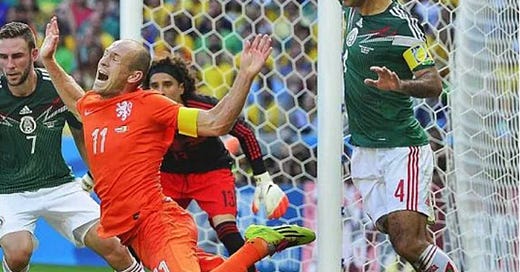




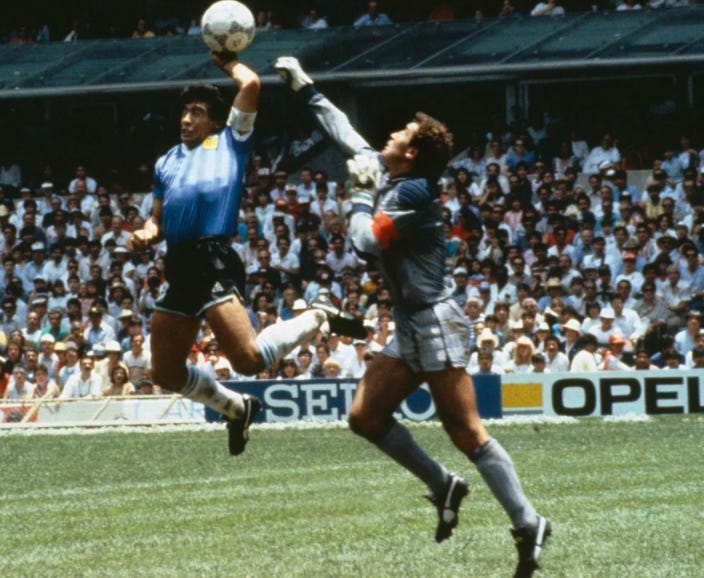
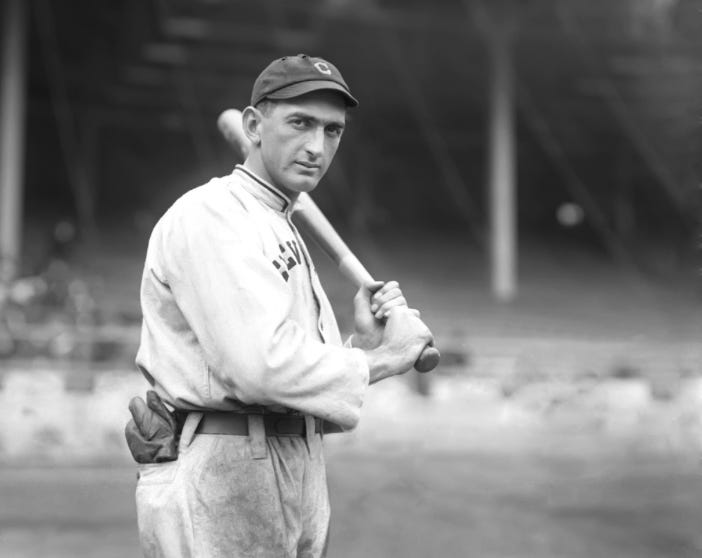



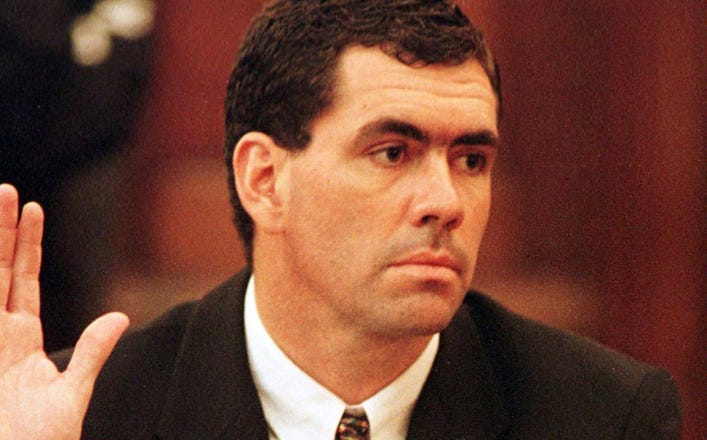
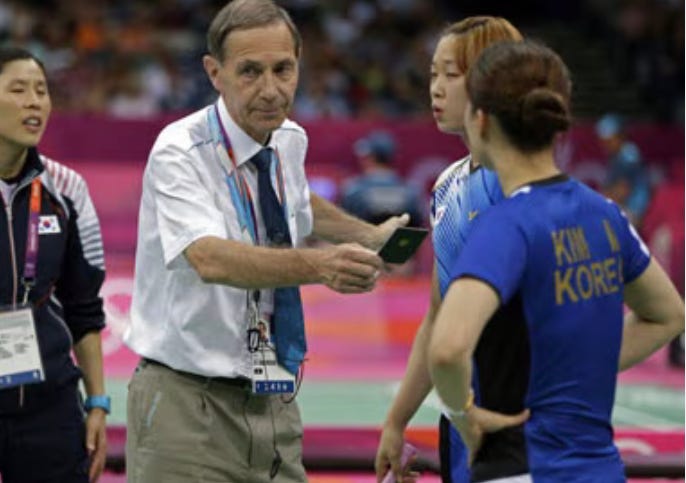



As usual, a brilliantly written and thought provoking blog Sam. How you manage to extrapolate the fact from the fiction amazes me. Keep the blogs coming. Thanks a lot. Broughty Ferry fan.